
- Home
- News
- Analysis
- States
- Perspective
- Videos
- Education
- Entertainment
- Elections
- World Cup 2023
- Features
- Health
- Business
- Series
- Economy Series
- Earth Day
- Kashmir’s Frozen Turbulence
- India@75
- The legend of Ramjanmabhoomi
- Liberalisation@30
- How to tame a dragon
- Celebrating biodiversity
- Farm Matters
- 50 days of solitude
- Bringing Migrants Home
- Budget 2020
- Jharkhand Votes
- The Federal Investigates
- The Federal Impact
- Vanishing Sand
- Gandhi @ 150
- Andhra Today
- Field report
- Operation Gulmarg
- Pandemic @1 Mn in India
- The Federal Year-End
- The Zero Year
- Premium
- Science
- Brand studio
- Home
- NewsNews
- Analysis
- StatesStates
- PerspectivePerspective
- VideosVideos
- Entertainment
- ElectionsElections
- Sports
- Loading...
Sports - Features
- BusinessBusiness
- Premium
- Loading...
Premium
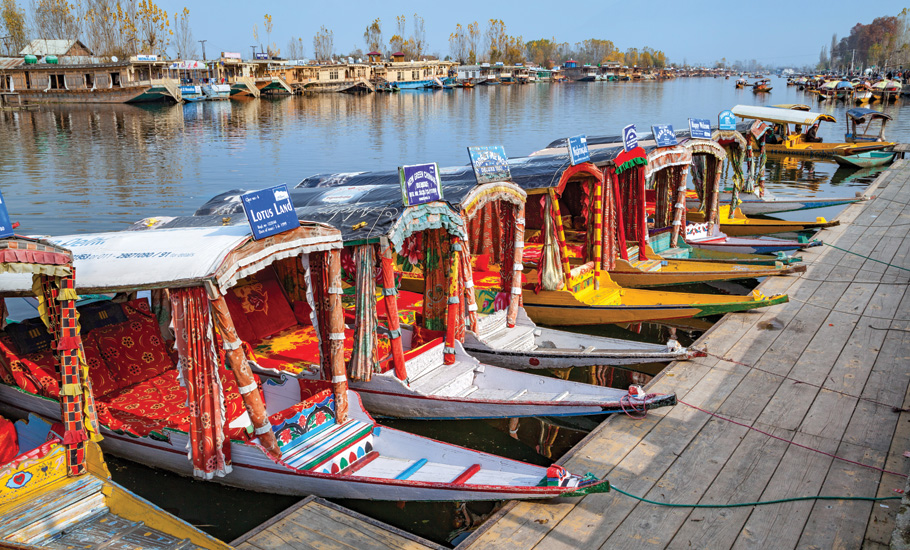
Tourism: Why the big spenders are giving Kashmir a miss

Nearly three years after the abrogation of Article 370 and the pandemic-induced lockdowns brought tourism and related economic activities to a halt in Kashmir, a smile crossed the lips of Ramzan Kak on the arrival of a foreign guest. The guest was no stranger. Kak had met David Housego, former New Delhi bureau correspondent for London-based Financial Times, about three decades ago. The...
Nearly three years after the abrogation of Article 370 and the pandemic-induced lockdowns brought tourism and related economic activities to a halt in Kashmir, a smile crossed the lips of Ramzan Kak on the arrival of a foreign guest. The guest was no stranger. Kak had met David Housego, former New Delhi bureau correspondent for London-based Financial Times, about three decades ago. The meeting remains etched in the minds of both Kak and Housego even if it has faded from the memories of those witness to the Valley’s violent conflict days.
In his 70s now, Kak has been working in Clermont — Kashmir’s iconic houseboat on Dal Lake — for more than four decades. In 1994, Kak was accompanying David Housego, his first wife Jenny and 16-year-old son Kim on a trek in Pahalgam when Kim and another British citizen, David Mackie, were abducted by the militant organisation Harkat-Ul-Ansar.
The kidnapping of Kim and Mackie was the first time the Harkat had seized foreign hostages to bargain for the release of their leaders. Following international pressure brought about by David Housego’s persuasion, the hostages were released after 17 days of abduction.
With his son freed, David Housego left Kashmir and never returned until the winter of 2021. This time with his daughter Meher. David revisited Clermont to meet his former chauffeur-turned-fixer in Kashmir. Both exchanged pleasantries, discussed politics, life and work in the shadows of Covid.
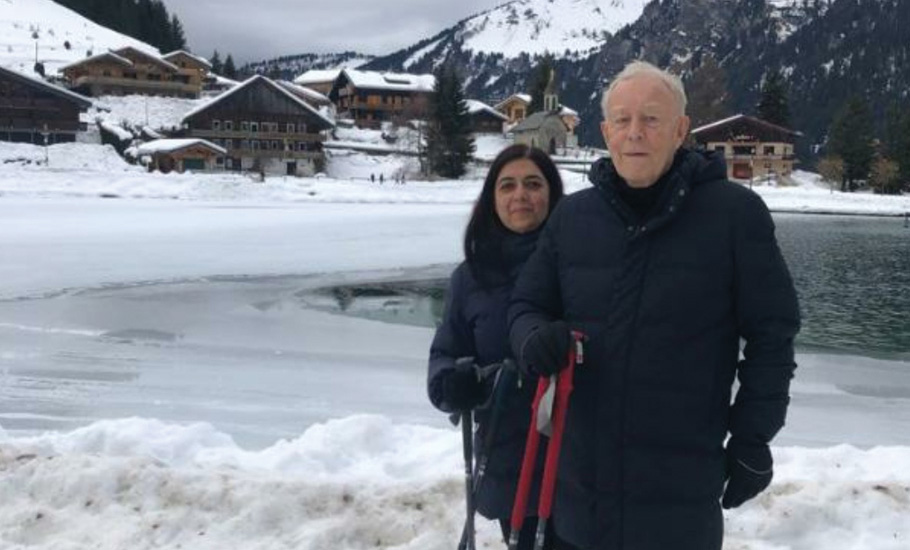
Kak’s happiness doesn’t just stem from the fact that David Housego is an old acquaintance and has returned years after a traumatic experience, but also from the fact that the latter is among the very few foreign tourists in the recent past to have visited Kashmir — a region which not too long ago ranked high on the bucket list of foreign travellers.
Kak reminisces the days of Kim’s captivity when scores of foreign correspondents stationed in Delhi were camping in Clermont.
“Satellite phones were used in this garden,” Kak tells The Federal. “They would contact Afghanistan and warlord Gulbuddin Hekmatyar from Clermont’s garden to secure the release of the hostages. Even the embassy people were here.”
Having worked for decades at the houseboat that was once the hub of foreigners landing in Kashmir given its iconic status, Kak laments the dwindling footfall of foreigners, who once arrived in the Valley in droves.
“Be it the pre-1990 or post-1990 era, foreigners were always there in Kashmir. But now they hardly turn up,” he rues.
Those working in the tourism sector, however, are making earnest efforts to win back foreign tourists. Manzoor Butt, the third-generation owner of Clermont, these days is trying to woo his old foreign clientele for another visit to Kashmir.
“We were slowly coming back on track, but the political lockdown in the wake of abrogation of Article 370 and the pandemic hit the global tourism industry,” Butt tells The Federal, seated in his wooden cabin decked with portraits of former US ambassadors and pop singers who once stayed in Clermont.
“Despite insurgency, foreigners from some countries such as Malaysia, Thailand, Korea, Europe and the US were visiting Kashmir. But now, hardly anyone is turning up. And if someone does, like Mr Housego last year, it only makes us nostalgic about the golden days.”
Local versus global
A recent report by a local media further highlighted that the Valley has lost over 90 per cent of foreign tourists over the years. Even though domestic tourism has increased, stakeholders in Kashmir’s tourism fear a possible disappearance of the Valley from the world tourism map.
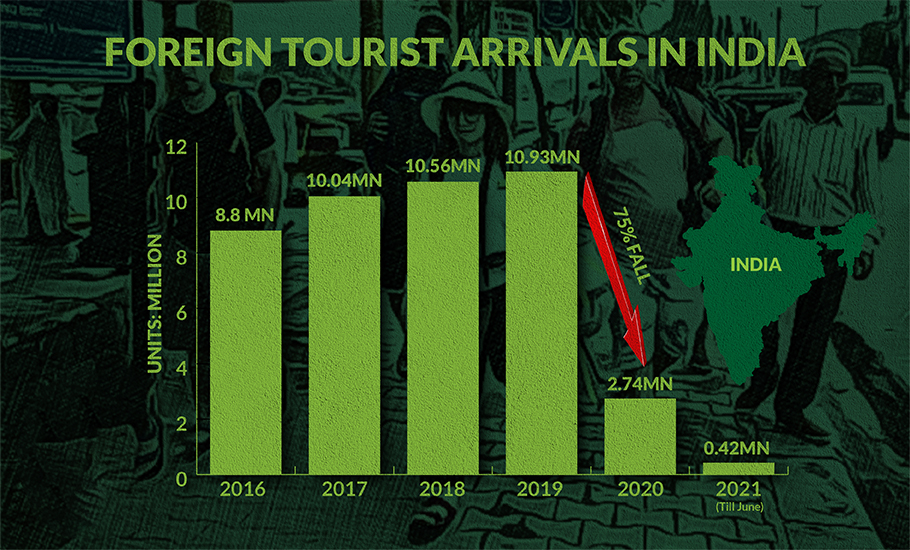
Among the factors contributing to foreigners keeping away are the travel advisories issued by countries against travel to Kashmir. On March 30, the US issued a new travel advisory asking its citizens to exercise increased caution and also advised them not to travel to Jammu and Kashmir and within 10 km of the India-Pakistan border.
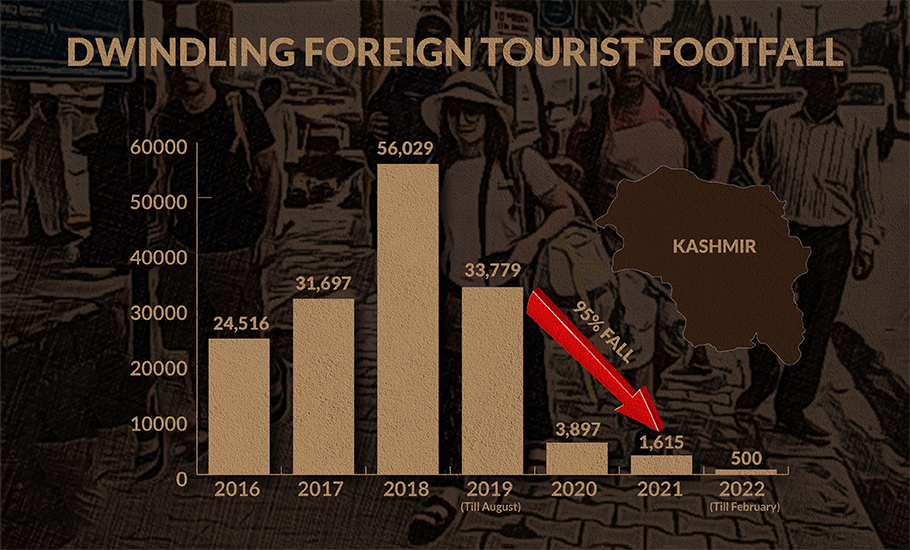
While Covid led to a 75 per cent dip in Foreign Tourist Arrivals in India in 2021 over the previous year, in the case of Kashmir inbound tourism fell by 90 per cent after August 2019.
As per official figures, in 2019, 33,779 foreign tourists visited Kashmir, many of whom had to cut short their visits in August 2019. The number went down to 3,897 in 2020 due to Covid and further declined to 1,615 in 2021. Till the end of February this year, only about 500 foreign tourists have visited Kashmir.
On the other hand, official figures indicate domestic tourists are visiting Kashmir in larger numbers after the lifting of Covid restrictions. Government figures suggest that domestic tourism is set to hit a 10-year high after more than 3,40,000 tourists arrived in the Valley between January and April.
But that doesn’t help ignore the fact that it’s the big spenders from foreign countries that the Kashmiris look forward to for windfall. Tariq Ahmad Patloo, a member of Houseboat Owners’ Association, says while domestic tourists often pay as much as international travellers for staying in houseboats, their handicraft is mostly bought by foreigners. “The arrival of foreigners helps tourism-dependent people in the Valley,” he adds.
Mazoor Butt, however, remains hopeful and is working hard to win back the foreign tourists. Butt has opened a Facebook page, Butts Clermont Houseboats, through which he is trying to invite guests from foreign countries.
“When I uploaded photographs of famous celebrities and foreign visitors who have stayed in Clermont, it helped me gain their trust,” Butt says in his crisp American-accented English.
“But I keep my fingers crossed. Kashmir being an uncertain place has always discouraged a desirable footfall of foreigners. As long as AFSPA [Armed Forces Special Powers Act] tags Kashmir as a disturbed territory, foreign countries won’t lift adverse travel advisories for Kashmir. They can’t allow their citizens to risk their lives.”
In 2019, when the central government started issuing ominous advisories to tourists in the Valley ahead of the abrogation of Article 370 from J&K, Butt’s Clermont was hosting foreign tourists from Kazakhstan and Uzbekistan. “The police arrived and asked our guests to leave as early as possible,” Butt says. “Next morning, everyone left in a hurry. The visitors carried the fear and anxieties they experienced to their home countries. This has discouraged further footfall to the Valley.”
The fears, Butt says, are eroding the legacy of Clermont — the floating odyssey which borrows its name from an area in Norfolk, England — of being a foreign tourist’s delight.
Clermont is not the only houseboat missing its foreign visitors.
A houseboat’s lament
Noted Kashmir chronicler Zareef Ahmad Zareef says houseboats have historically been a huge attraction for foreigners.
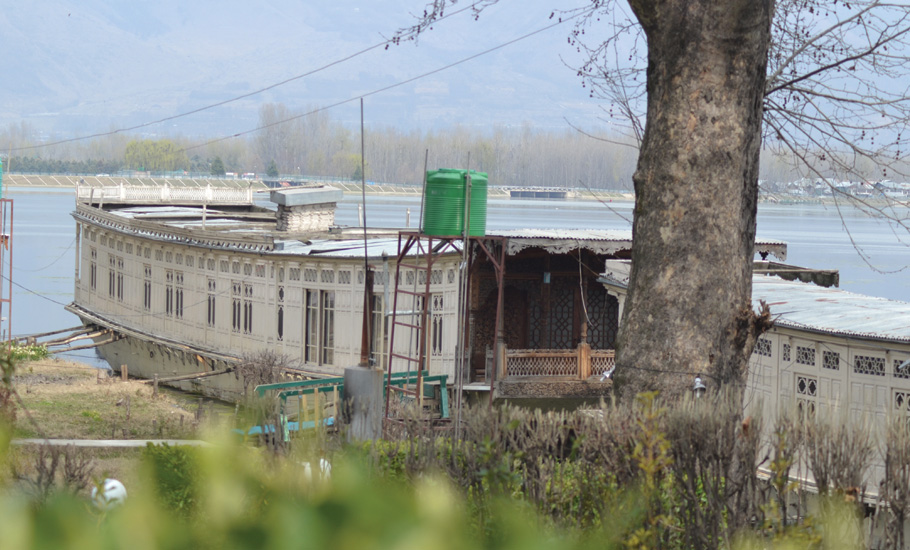
“During the Dogra rule in Kashmir, the imperial British visitors used to come to Kashmir to enjoy long holidays here. And when the British left India in 1947, the locals started hosting foreign tourists. These houseboats became wonders of Dal Lake and Nigeen Lake and played an important role in bringing Kashmir on the world tourism map,” Zareef tells The Federal.
Inside Clermont, Manzoor Butt revisits his youthful days when domestic tourism was unknown to Kashmir. “Barring a couple of hotels, it used to be mostly foreign tourists in the numerous houseboats,” he says. “The foreigners would go fishing, trekking and taking shikara rides. Back then, we had one family from Australia that came regularly to Kashmir. Robin Lavid and his family made 26 visits altogether from the late 1960s to 1988, and exclusively for fishing.”
During the same time, Clermont hosted Nelson Rockefeller, an American businessman and politician who served as the 41st vice-president of the United States from December 1974 to January 1977. “He was in Kashmir for a holiday, but he used to get up early and had fixed time for breakfast and dinner. The man would plan his treks, shopping, and shikara rides on time without fail. These guests used to respect our staff and treat them as equals. They even trained our cooks. So, those foreigners were institutions unto themselves shaping overall life and tastes in Kashmir.”
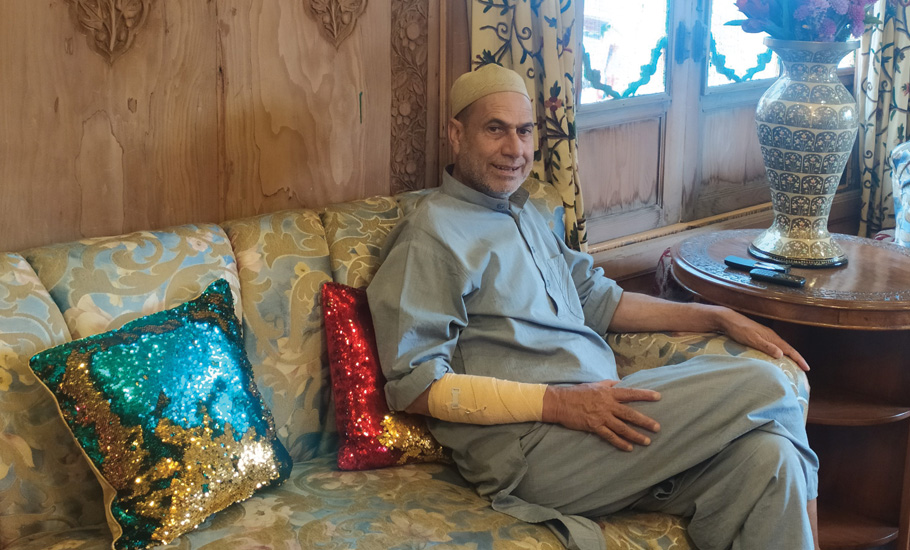
According to London-based author and journalist Victoria Schofield, who happens to be a frequent visitor to Kashmir, before the “troubles” started, the Valley was a wonderland for travellers across the world. “I remember coming to this mountainous region in 1981,” she says. “It was March and the mountains were still dusted with snow. It was also very cold and we wore pherans and warmed our hands on kangris. For me, coming from the UK, the houseboats were a novelty and looked magical. I had read about how the British used to escape the heat of the plains in summer and come to Kashmir, but I couldn’t quite imagine their comfort with wood carvings, carpets and crewel work curtains until I experienced that myself.”
However, she adds, the insurgency that began in the 1990s and the heavy militarisation of the region meant that going on holiday to Kashmir did not provide the same comforting feeling. “Security also became an issue. The taking of hostages [and the beheading of Norwegian national Hans Christian Ostrø in 1995] was also a deterrent.”
It to allay such fears, Habib Wangnoo, owner of Sheraton Houseboats, has been meeting people associated with international travel agencies. “We had begun to recover the lost ground before the abrogation of Article 370 made matters worse and drove tourists out,” Wangnoo says.
Invitations say ‘nothing to fear’
“Before August 2019, we used to host around 100 foreign tourists a month as they used to come in groups. In fact, during the abrogation, we had a group of tourists from Australia and Indonesia. And one regular visitor to our houseboat was a Sheikh from Qatar named Hamad. His embassy came to check with him and he was safe and enjoying his time in Kashmir. But now, such tourists have become a rarity.”
Wangnoo has previously hosted Mick Jagger of The Rolling Stones. “Foreigners used to come and stay in houseboats for months,” he says. “They always go for houseboats for the unique experience which they won’t find anywhere else. Houseboats provide them with a unique environment to understand the culture, tradition and art of Kashmir. We personally take care of customers and that is the novelty of the houseboats.”
During Kashmir’s recent troubled years, Wangnoo tried contacting travel agents for foreign clientele. “I invited them to Kashmir and asked them to review and experience the safety for a tourist and this helped me to some extent,” he adds. “Even our domestic tourists are reluctant to visit Kashmir. But I tell them this is a crime-free region.”
Relentless efforts helped Wangnoo succeed in getting limited groups from France, Malaysia, Europe, Australia and some the US. “Our handicraft business is mostly dependent on foreigners,” he says. “I would say five Kashmiris—be it a cab driver, a houseboat owner, a shikarawallah, a handicraft artisan or a tailor—are dependent on one foreigner.”
In Nigeen Lake of Srinagar, Showkat Tuman, 51, blames travel advisories for the dwindling foreign tourist footfall in Kashmir. “Foreigners working in India rarely visit Kashmir now,” Tuman, whose family has been hosting tourists in their Massot houseboat since 1960, tells The Federal. “Even their embassies don’t allow them to visit Kashmir.”

A houseboat owner, who wanted to be anonymous, says a week ago he was hosting some Italian embassy officials in his houseboat, but then some adverse intelligence report cut their trip short. “They don’t consider Kashmir as a safe destination now,” he adds.
“Foreign tourists know the art of travelling. They like to do what the locals do, experience and adopt it and spend those days accordingly. They respect the place, ambience and appreciate the art and craft of Kashmir. But if they feel there is no freedom of movement, they won’t show up. That’s exactly what’s stopping them from coming to Kashmir now.”

